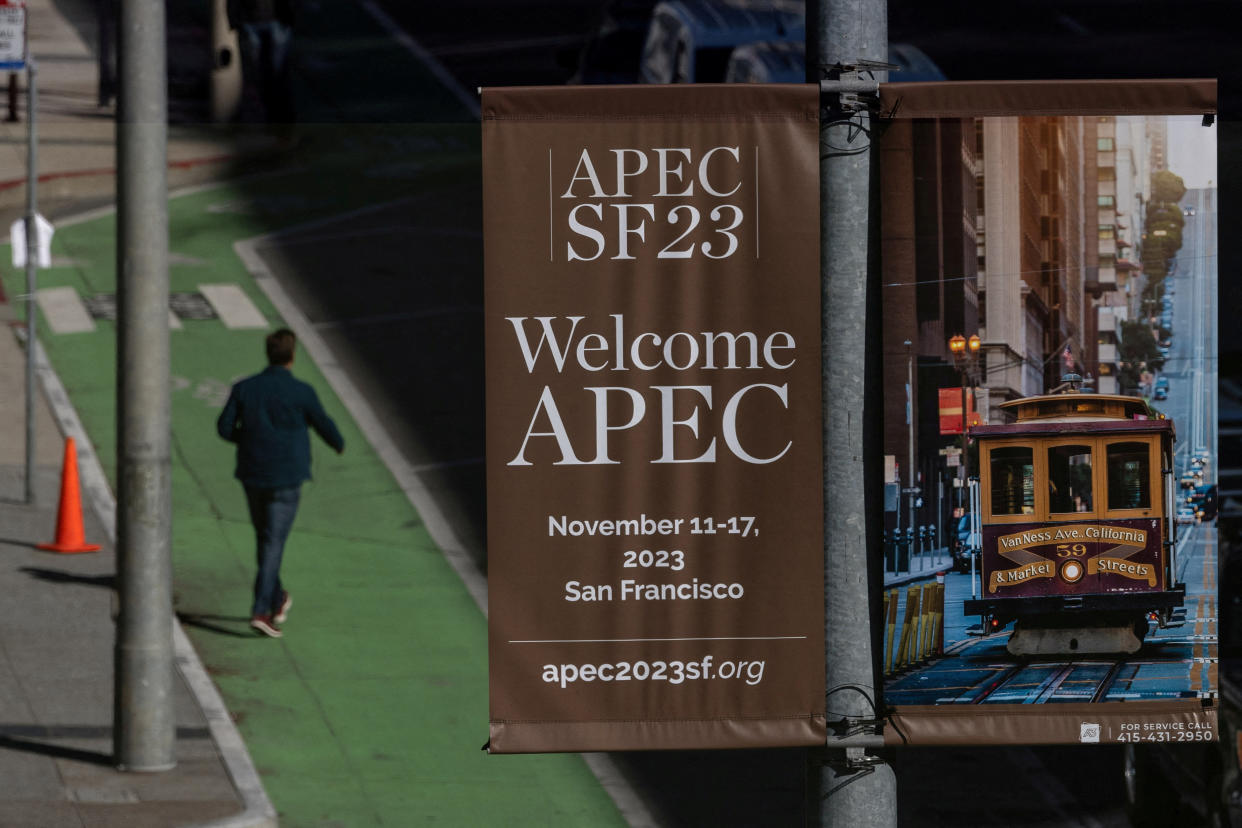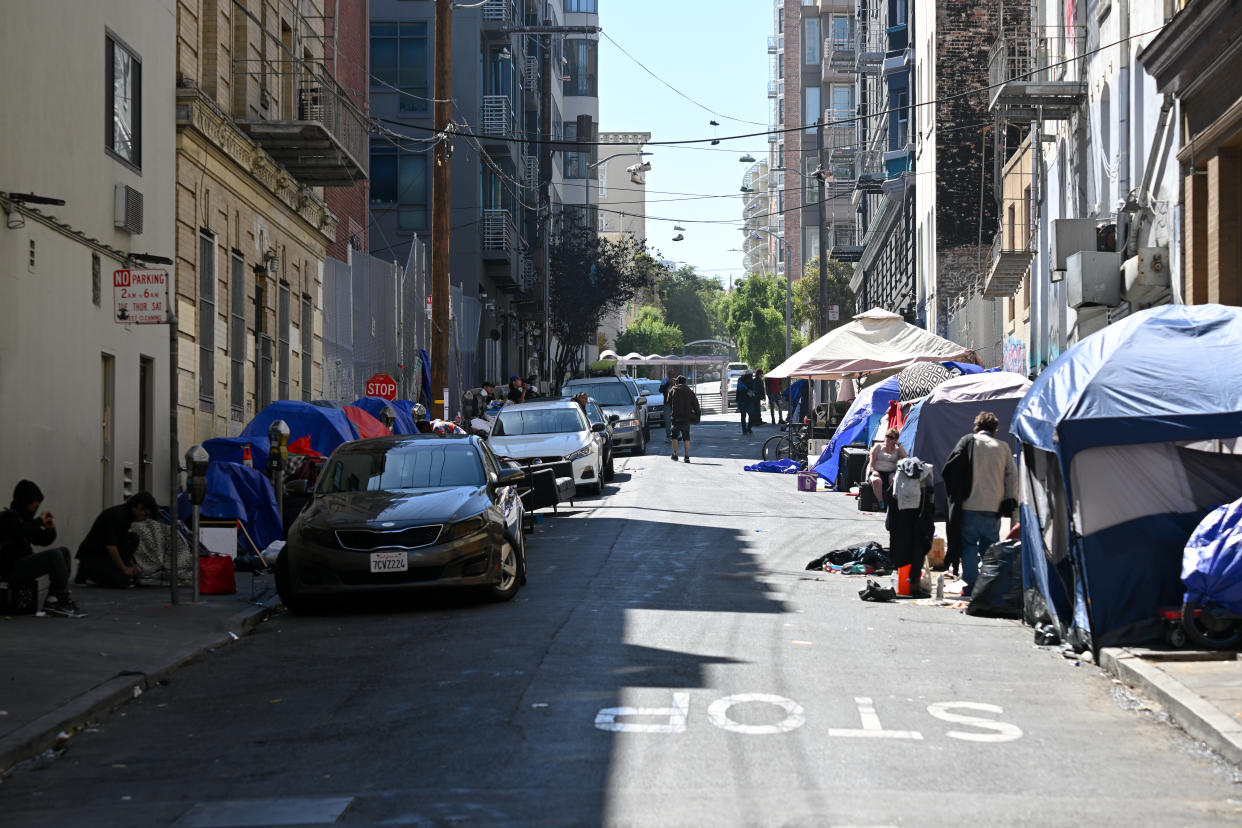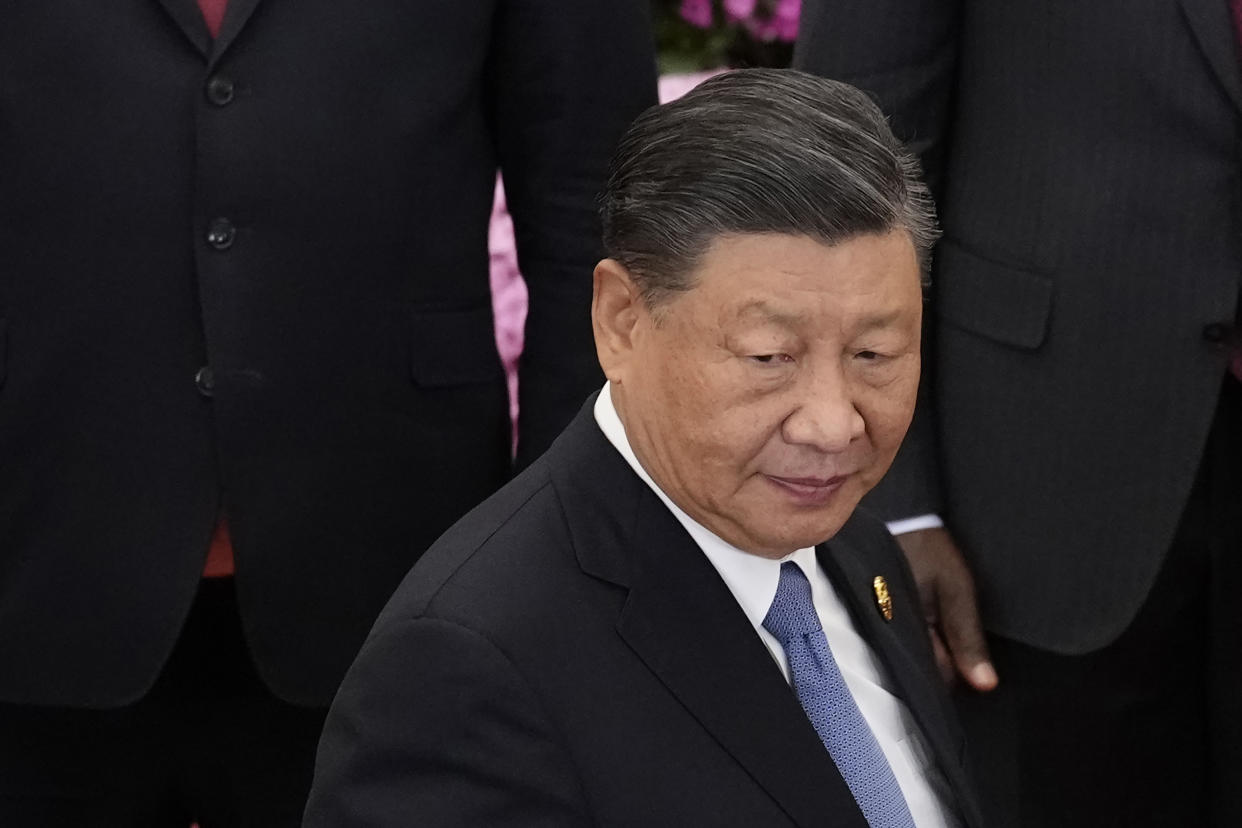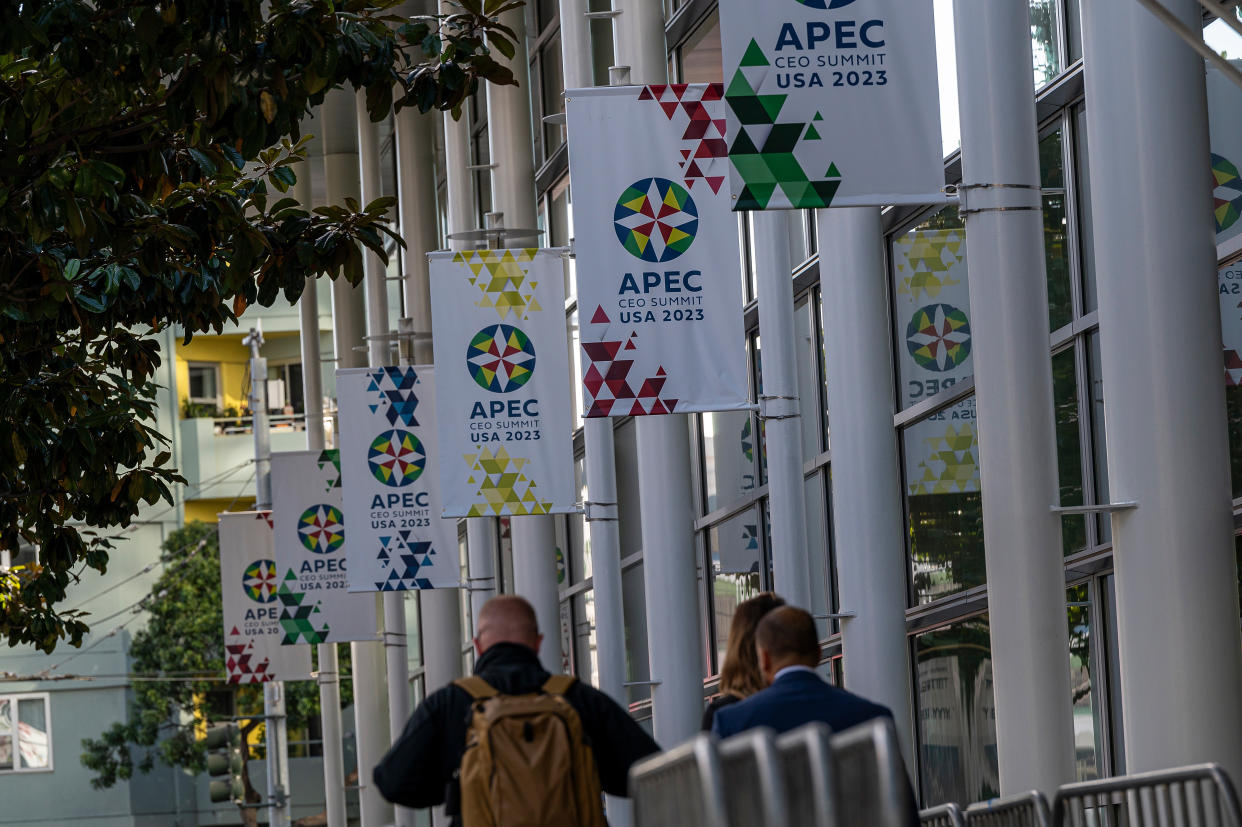Why is San Francisco suddenly clean? Biden-Xi summit spurs city to action

President Biden arrives in San Francisco on Tuesday to find a city much cleaner than the one to which locals have become accustomed, with homeless encampments, open-air drug markets and widespread property crime.
That’s because city officials undertook an intensive effort to clean up the city ahead of this week’s Asia-Pacific Economic Cooperation summit — and the much-anticipated meeting between Biden and Chinese leader Xi Jinping on Wednesday.
During a White House news briefing on Monday, a reporter asked national security adviser Jake Sullivan if the president was “embarrassed that an American city needs to go through a total makeover to be presentable for his out-of-town guests.”
Sullivan did not answer the question.
Recommended reading
A city in trouble
For years, San Francisco has experienced twin realities, with the immense wealth of Silicon Valley competing with the incredible despair of the city’s homeless population, now estimated to be around 7,700 people, many of whom are experiencing serious mental illness and drug addiction.
Many also live in public encampments, which court orders have made difficult to permanently remove, to city leaders’ endless frustration. A ready supply of cheap and powerful fentanyl has turned some downtown neighborhoods, especially the Tenderloin, into sites of almost unimaginable human suffering, with victims of addiction sprawled across sidewalks, shuddering in doorways — and sometimes dying from overdoses in open sight. And the shattered glass of broken-into cars has become a common sight, with critics alleging that lenient criminal justice policies have contributed to an epidemic of property crime.
Additionally, remote work has left large swaths of downtown San Francisco empty, adding to the sense of public unease and causing some to worry that the city was about to enter a “doom loop.”
“There are very many compounding things that got us to a place where we are now, but there’s also a deep commitment to bounce back,” city planner Geeti Silwal told USA Today, adding that the Asian leaders’ summit was an opportunity for a municipal reset. “This event could give the city some much-needed vibrancy.”
Recommended reading

A clean city makes locals wonder
In a matter of days, San Francisco went into overdrive to prepare for the arrival of Biden, Xi and other leaders. Homeless encampments were cleared, with tents gone from Market Street, the city’s main thoroughfare, and the blocks around City Hall, a move city leaders justified by citing unprecedented security and logistical concerns. Sidewalks rife with drug paraphernalia and human waste were cleaned. A new city seemed to emerge, to residents’ astonishment.
“San Francisco feels clean, smells good, and feels MUCH SAFER after this week’s cleanup in preparation of @APEC,” resident Alex Lau wrote in a social media post. “This should be the world class city we should be striving for. We have been settling for less. Let’s keep San Francisco clean and safe for everyday San Franciscans!”
But others wondered why it took so long, why the city could not undertake similar measures until the leaders of the world’s two major superpowers decided to meet in San Francisco. “If the city is able to create an illusion that it’s clean and runs effectively and humans are in shelters,” deli owner Adam Mesnick mused to the New York Times, “even if it’s just for APEC, why is that not sustainable for the longer term?
Recommended reading

A precedent
San Francisco is hardly the first city to deal with the social ills on its streets by trying to move them out of public sight.
In 1999, after a homeless person attacked a midtown office worker, New York’s mayor at the time, Rudy Giuliani, threatened to arrest homeless people who insisted on using public spaces like sidewalks for shelter. “The founding fathers never put that in the Constitution,” the blustery mayor said.
His successor, the Upper East Side billionaire Mike Bloomberg, paid for homeless people to travel to reunite with their families. The city’s current mayor, former police officer Eric Adams, has also said that homeless people who are a danger to themselves or others could face involuntary confinement.
San Francisco is subject to a different set of laws — and a different set of problems, shaped by politics, culture and even climate. But even this famously progressive city has started to rethink its approach, fearing that businesses and conventions will flee. Earlier this year, Salesforce founder Marc Benioff said he would move his company’s huge annual conference unless San Francisco restored cleanliness and order to parts of downtown.
“Nobody liked that — I didn’t like to say it,” Benioff said at the time, though he was ultimately pleased with the result.
Recommended reading
NBC News:One-on-one with Marc Benioff

Gavin’s town
When Benioff made his demand, California Gov. Gavin Newsom, the former mayor of San Francisco — who is widely expected to seek the presidency at some point — proudly owned up to the fact that he and city leaders had been willing to do whatever it took to keep Salesforce from leaving.
“We’re sucking up to you, we want to keep you here,” Newsom said during an event with Benioff at the Salesforce conference, which took place in San Francisco as planned, after some cleanup efforts.
Newsom’s reputation is closely tied to both his native city and the state he now governs. If California as a whole is perceived as the most troubling aspects of San Francisco writ large — that is, a state where crime and open-air drug use are implicitly tolerated, while homeless encampments grow unchecked — he will have difficulty persuading voters in New Hampshire and Iowa that he should be in charge.
That may explain why, as with Benioff, Newsom proudly admitted that San Francisco was being cleaned up for Xi. “I know folks say, ‘Oh, they’re just cleaning up this place because all those fancy leaders are coming into town,’ That’s true because it’s true,” the governor said.
Recommended reading
Deseret News: Gavin Newsom’s not-so-hidden presidential ambitions
